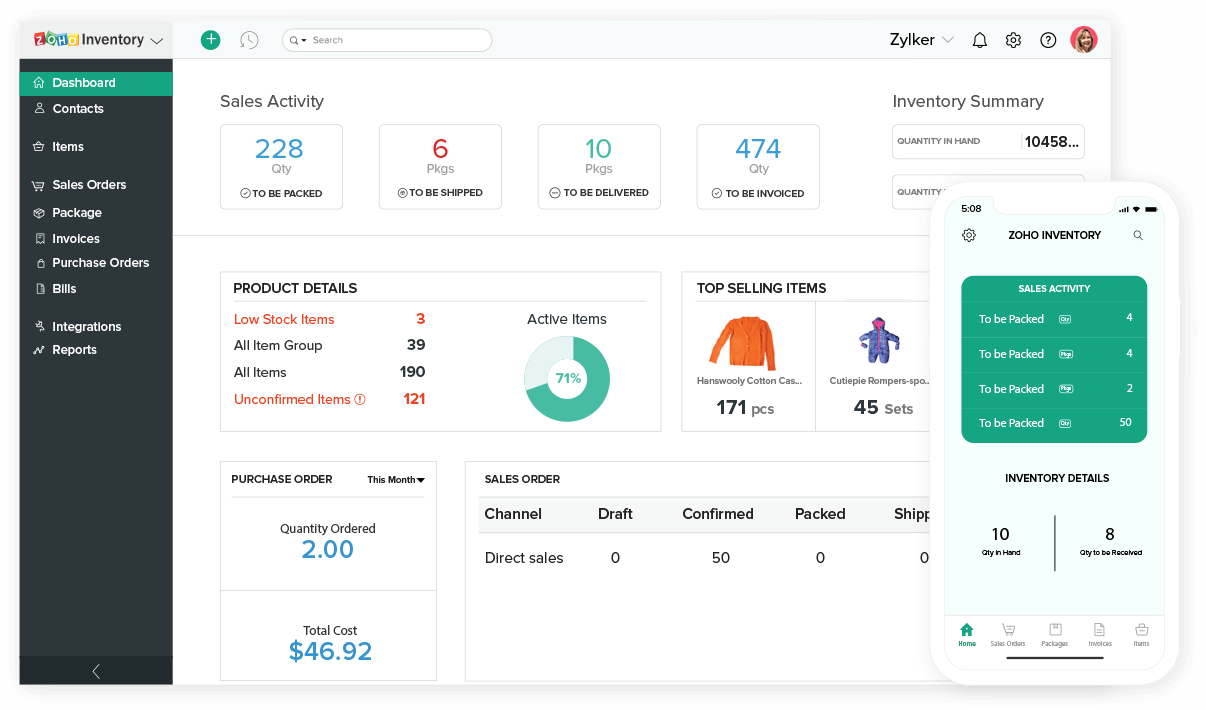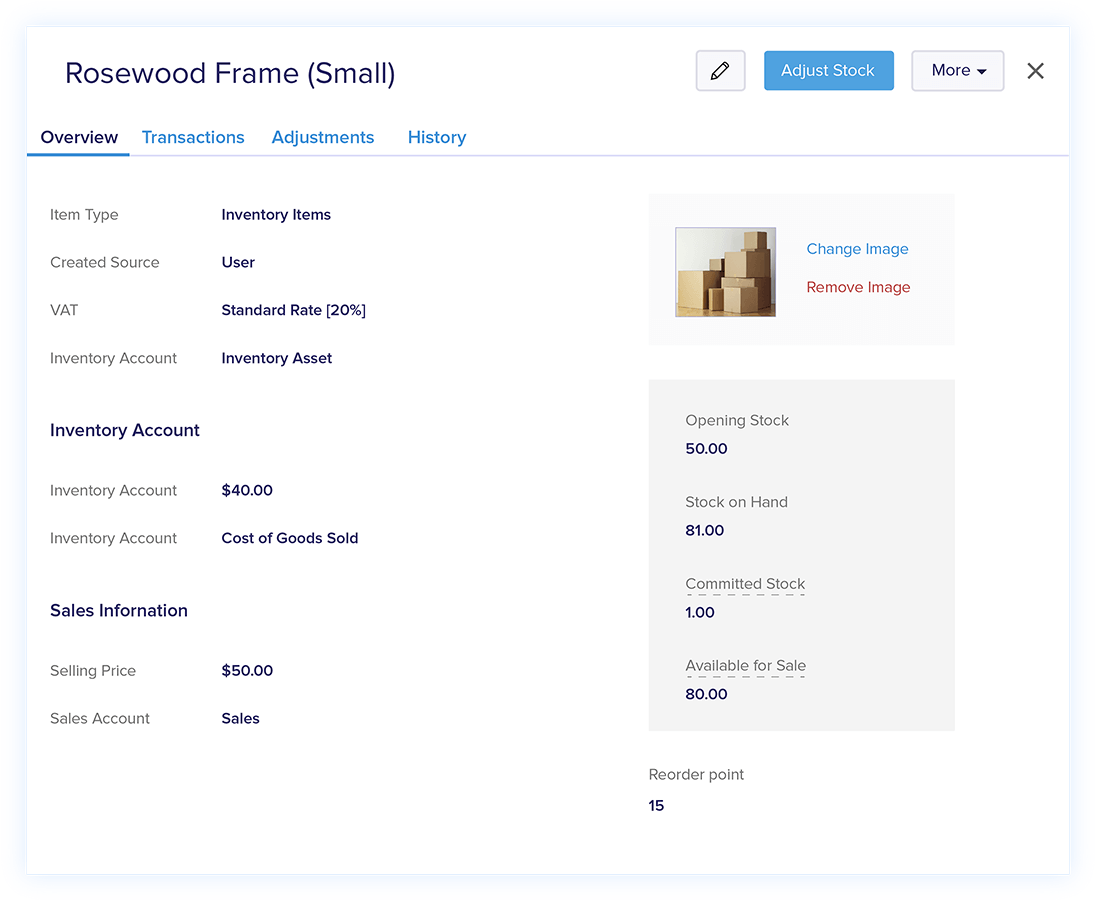Best inventory accounting software for small business – In the realm of small businesses, inventory accounting software reigns supreme, offering a lifeline to entrepreneurs seeking to streamline their operations and unlock growth. With a myriad of options available, choosing the best software can be a daunting task. This comprehensive guide will navigate you through the complexities, empowering you to make an informed decision that will propel your business forward.
From understanding the key features to evaluating industry-specific requirements, we’ll delve into the intricacies of inventory accounting software, providing you with the knowledge to make a choice that aligns seamlessly with your unique needs.
Introduction
Inventory accounting software is crucial for small businesses to effectively manage their inventory, track stock levels, and optimize their operations. It streamlines inventory management processes, reduces errors, and provides valuable insights into stock performance.
When selecting inventory accounting software, consider key features such as:
* Stock tracking and management
* Purchase order and invoicing capabilities
* Reporting and analytics
* Integration with other business systems
Key Features
Inventory accounting software offers a range of functionalities that enhance inventory management, including:
* Real-time inventory tracking: Monitor stock levels in real-time to avoid overstocking or stockouts.
* Purchase order management: Automate the purchase order process, track vendor performance, and manage supplier relationships.
* Invoicing and billing: Generate invoices and track payments to streamline the billing process.
* Reporting and analytics: Access detailed reports and analytics to gain insights into inventory performance, identify trends, and make informed decisions.
* Integration with other systems: Integrate with accounting software, e-commerce platforms, and other business applications to streamline operations and improve data accuracy.
Features and Benefits

Inventory accounting software for small businesses comes in various types, each with unique features and benefits tailored to specific business needs. Here’s an overview of the main types of software and their advantages:
Cloud-based Inventory Software
- Benefits:
- Accessible from anywhere with an internet connection.
- Automatic software updates and data backups.
- Scalable to meet growing business needs.
- Cost-effective compared to on-premise software.
On-premise Inventory Software
- Benefits:
- Provides greater control over data and security.
- Typically offers more customization options.
- Can be more expensive to implement and maintain.
Open-source Inventory Software, Best inventory accounting software for small business
- Benefits:
- Free to use and modify.
- Community support available for troubleshooting.
- May require technical expertise for implementation.
Specific Features and Benefits
Specific features offered by inventory accounting software can include:
- Inventory tracking: Real-time visibility into inventory levels, locations, and movements.
- Purchase order management: Streamlines the process of ordering and receiving inventory.
- Inventory forecasting: Predicts future inventory needs based on historical data and trends.
- Barcode scanning: Automates inventory data entry and reduces errors.
- Reporting and analytics: Provides insights into inventory performance, profitability, and areas for improvement.
Integration with Other Systems

Integrating inventory accounting software with other business systems, such as accounting and CRM, is crucial for streamlining operations and enhancing data accuracy. By establishing seamless connections between these systems, businesses can automate data transfer, eliminating manual entry errors and saving time.
Improved Data Accuracy and Efficiency
Integration ensures that inventory data is consistently updated across all connected systems. This eliminates the risk of discrepancies between inventory records and financial statements, providing a clear and accurate picture of inventory levels and costs. Additionally, automated data transfer reduces the workload for staff, allowing them to focus on more strategic tasks.
User-Friendliness and Support
For small businesses, it’s crucial to have inventory accounting software that is user-friendly and easy to navigate. A simple and intuitive interface can save you time and effort, allowing you to focus on more important aspects of your business.
In addition to user-friendliness, reliable support is essential. Look for software that provides comprehensive documentation, tutorials, and responsive customer service. This ensures that you have the resources you need to get up and running quickly and resolve any issues that may arise.
Online Documentation and Tutorials
- Access to comprehensive user manuals and step-by-step guides.
- Interactive tutorials to demonstrate key features and functionalities.
- Online knowledge base with searchable articles and troubleshooting tips.
Customer Support
- Dedicated support team available via phone, email, or live chat.
- Prompt response times and knowledgeable support representatives.
- Regular software updates and patches to address bugs and improve performance.
Pricing and Value for Money
When evaluating inventory accounting software, it’s crucial to consider the pricing models and determine which one best aligns with your business needs and budget. Different software providers offer varying pricing structures, such as subscription-based, one-time purchase, or tiered pricing based on features and usage.
Factors to Consider for Value for Money
* Features and Functionality: Assess the software’s core features and capabilities to ensure it meets your specific inventory management requirements. Consider aspects such as inventory tracking, reporting, forecasting, and integration with other systems.
* Scalability: Determine if the software can accommodate your business’s growth and evolving needs. Consider the software’s capacity to handle larger inventory volumes, multiple locations, and increased transaction frequency.
* Support and Training: Evaluate the level of support and training provided by the software vendor. Consider the availability of documentation, tutorials, online forums, and dedicated customer support to ensure you can effectively implement and utilize the software.
* Return on Investment (ROI): Calculate the potential ROI by considering the cost of the software, implementation, and ongoing maintenance against the benefits it provides, such as improved inventory accuracy, reduced waste, and increased efficiency.
By carefully considering these factors, you can make an informed decision about which inventory accounting software offers the best value for money and aligns with your business objectives.
Industry-Specific Features
When selecting inventory accounting software, consider the unique needs of your industry. Specific features can streamline operations and enhance accuracy for businesses in different sectors.
For instance, retail businesses may require features for managing multiple locations, tracking customer loyalty programs, and handling point-of-sale transactions. Manufacturing companies, on the other hand, may need capabilities for production planning, inventory costing, and managing complex bills of materials.
Retail
- Multi-location management: Track inventory levels and sales across multiple store locations.
- Customer loyalty tracking: Monitor customer purchases and reward repeat business.
- Point-of-sale integration: Seamlessly process sales transactions and update inventory in real-time.
Manufacturing
- Production planning: Schedule and optimize production processes based on inventory availability.
- Inventory costing: Calculate the cost of goods sold accurately using various costing methods.
- Bill of materials management: Track the components required for each finished product and ensure availability.
Case Studies and Success Stories
Discover how small businesses have transformed their inventory management with the help of inventory accounting software. These case studies and success stories provide valuable insights into the benefits and challenges encountered during the implementation process.
Benefits Experienced
- Improved inventory accuracy, reducing losses due to overstocking or understocking.
- Enhanced visibility into inventory levels, enabling businesses to make informed decisions about purchasing and production.
- Streamlined inventory processes, saving time and reducing manual errors.
- Improved customer satisfaction by ensuring product availability and timely delivery.
Challenges Overcome
- Initial data entry can be time-consuming, especially for businesses with large inventories.
- Integrating the software with existing systems may require technical expertise.
- Training staff on the new software can take time and effort.
- Businesses may need to adjust their inventory management practices to align with the software’s capabilities.
Conclusion: Best Inventory Accounting Software For Small Business

In summary, selecting the optimal inventory accounting software for a small business requires careful consideration of specific needs and requirements. Factors such as industry, business size, budget, and desired features should be thoroughly evaluated.
To make an informed decision, small businesses are advised to research various software options, read reviews, and consider demos or free trials to experience the software firsthand. By following these recommendations, businesses can confidently choose the inventory accounting software that aligns seamlessly with their operations and supports their growth.
Final Thoughts
Choosing the right inventory accounting software is a pivotal step in the growth journey of any small business. By considering the factors Artikeld in this guide, you can equip your enterprise with a solution that optimizes inventory management, enhances efficiency, and sets the stage for future success. Embrace the power of technology and unlock the full potential of your business today.
Top FAQs
What are the key features to look for in inventory accounting software?
Inventory tracking, reporting, order management, integration with other business systems, user-friendliness
How do I choose the right inventory accounting software for my small business?
Consider your business size, industry, specific needs, and budget
What are the benefits of using inventory accounting software?
Improved accuracy, reduced costs, enhanced efficiency, better decision-making